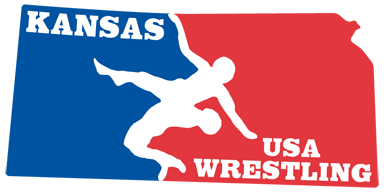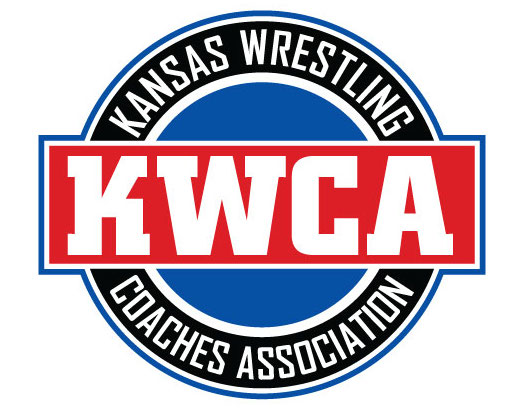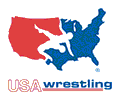Problems In Youth Sports
Bookmarks this Article
Email Article to Friend
Tell a friend about this article by entering their email, your email, and an optional personal message.
Recipient Email:
Your Email:
Personal Message: (Optional)
Sending email...
FamilyResource.com respects your privacy, and does not store any email addresses entered in this form — Privacy Policy.
By: James White and Gerald Masterson, Ph.D.
Can participating in competitive sports at too young of an age have a negative effect on our children and their future in sports? Starting ages for youth in competitive sports have lowered dramatically in the past two decades. Andrew Ferguson (1999) estimated that 40 million children are involved in competitive sports. It's not just the numbers that are staggering, but the manner in which kids are playing. Children who get involved in organized competitive sports at a young age may find themselves tired of the game they once loved. Young athletes are becoming increasingly stressed because of the pressure they are getting from their parents and coaches. They are traveling further, playing more games, and spending less time just being kids (Ferguson).
Children in today's era find themselves with a variety of competitive sports to choose from at earlier ages. The Amateur Athletic Union (AAU) boys and girls basketball, baseball/softball, soccer, football, volleyball, start as young as nine, while Little League Baseball and softball can start as early as five with tee-ball. Pop Warner, which is the nation's oldest football organization, starts at five. The American Youth Soccer Organization (AYSO) has kids competing at the age of four. While winning may not be the focus of these leagues it can be the focus of the parents.
When considering sports participation one should take into account the developmental age as well as the chronological age of a child before competing. Paulo David, author of Human Rights in Youth Sport: A Critical Review of Children's Rights in Competitive Sports, found that children don't always understand the concept of competition until age of six or seven. Children under nine may be incapable of differentiating between the concept of effort and that of ability. This means that they believe winning is achieved by how hard they try and that losing means they did not trying hard enough (David).
Sports knowledge development in children at a young age is essential. In the Primary grades children should be taught the rules of games and the structure of the game. Training for these children should be informal and playful in nature (Slentz & Krogh). With little or no emphasis on wins or losses which can often leads to emotional distress and long term refusal to be involved in competitive sports. Sports should be designed to improve a child's self concept in the early years (Essa).
In the book Why Johnny Hates Sports?, the author Fred Engh states "that if kids are competitive at early ages, then they may not be trained in how to fail. If all the focus is on winning, kids may be scared to fail and make mistakes. Mistakes are part of the learning process and it's how one improves. Failures can result in success, if we are teaching kids to learn from mistakes. If kids are never allowed to fail and are yelled at, pulled out every time they do something wrong then we are training them to be afraid to shoot or try. They are not going to want the ball for fear of making a mistaken and being taking out or humiliated in front of their peers. Allowing children to try and fail diminishes their fear of their parents, coaches, peers, and of humiliation because they are encouraged to try (Engh).
Too much competition too early may cause burnout. The term "burnout" is a relatively new term with children in competitive sports. Burnout can be defined as "the athlete's natural response to chronic, ongoing stress." By age thirteen burnouts begin to manifest and children start quitting their given sports (Lawrence). Burnout in kids' sports can be caused by a "play at all costs" attitude by the parents and coaches, by overtraining and excessive travel.
The problem starts when the sport becomes more like a job than play. These coaches and parents believe that by playing all the time it will translate to winning and possible visibility and then scholarships. We believe that parents no doubt want what is best for their kids. But with this win and play at all costs there is mounting evidence parents are cheating to give their kids an edge. They even lie about their child's age to gain an advantage and get more exposure. Parents are looking to prepare their child for Division I athletic scholarships or a professional career.
To gain an advantage parents insist that their children practice and play year-round to insure they have the best skills necessary to compete and be a starter in high school and on their club teams. Training and traveling all year round takes its toll on children. One report, noted that forced participation in competitive youth sports by parents can constitute as a form of abuse by parents because they are taking the childhood from the child. They want their children to specialize.
A study done by America Sports Data Inc. found that, in youth organized sports, 69% of all parents want their children to play only one sport. If the child is between six and eight years old, 79% of those parents want their child to play only one sport. Of all the sports organization in 2004, 44% of the children stated they only wanted to play one sport (Maher). If the child and his or her parents want the child to participate in only one sport, than the coach is more than happy to accommodate. To avoid burnout Children should wait until high school before specializing in a sport. In the book by Joel Spring, Making Athletics a Positive Experience for Your Child: 101 Ways to be a Terrific Sports Parent, he explains that children are not even physically capable of handling competitive sports. Most young kids are not capable of handling vigorous practices or games that are required in specializing of a sport. If children don't specialize in sports at a young age, they will be better suited learning how to develop a variety of motor and athletic skills that transfer from one sport to another and can't be developed by specializing (Fish).
There is no doubt that youth sports have become a huge force in society. Today's forms of youth sports, which are competitive in nature, are hurting the future sports of involvement for many reasons.
First, the age and nature of youth sports begins at too early. Second, children are being burned-out of sports at a young age. Third, the specialization of sports has dramatically affected participation in other numerous sports and the development of transferable skills. Finally, children are being pressured by parents to participate early to gain an advantage over their peers. With these factors affecting our youth, the future of high school sports might be in jeopardy. The trend is still so young that we don't know the long term societal effects of early competition on future participants but many are quitting. We need to remember that these are just games and should be fun and enjoyable to those who participate in.
ReferencesFerguson, Andrew. (1999). Inside the Crazy Culture of Kids Sports. Time. 1-8.
David, Paulo. (2004). Human Rights in Youth Sport: A Critical Review of Children's Rights in Competitive Sports. Nashville, TN: Rutledge.
Essa, Eva.(2002). Introduction to Early Childhood Education, 4E. Stamford, CT. Thomson Delmar Learning.
Slentz, K & Krogh, S. (2001). Early Childhood Development and its Variations. Florence, KY. Lawrence Erlbaum Associates.
Engh, Fred. (2002). Why Johnny Hates Sports. Garden City Park, NY. Square One.
Lawrence, Jean. (2004). Stress of Youth Sports. WebMD Feature. 1-2.
Wolff, Rick. (1997). Good Sports: The Concerned Parents Guide to Competitive Youth Sports, 2E. Champaign, IL. Sports Publishing, LLC.
Taylor, Jim. (2002). Positive Pushing: How to Raise a Successful and Happy Child. Hyperion.
Susani, D & Stewart, C. (2007). Specialization in Sport: How Early?...How Necessary?. Retrieved on February 12, 2007, from website:
http://www.coachesinfo.com/article/7/ Maher, Charles. (2005). School Sports Psychology: Perspectives, Programs and Procedures. Binghamton, NY. Haworth Press.
Fish, Joel. (2003). 101 Ways to be a Terrific Sports Parent: Making Athletics a Positive Experience for Your Child. New York, NY. Simon & Schuster, Inc.
Votano, Paul. (2000). The Trouble With Youth Sports: What the Problems are and How to Solve Them. Philadelphia, PA. Xlibris Corporation.







